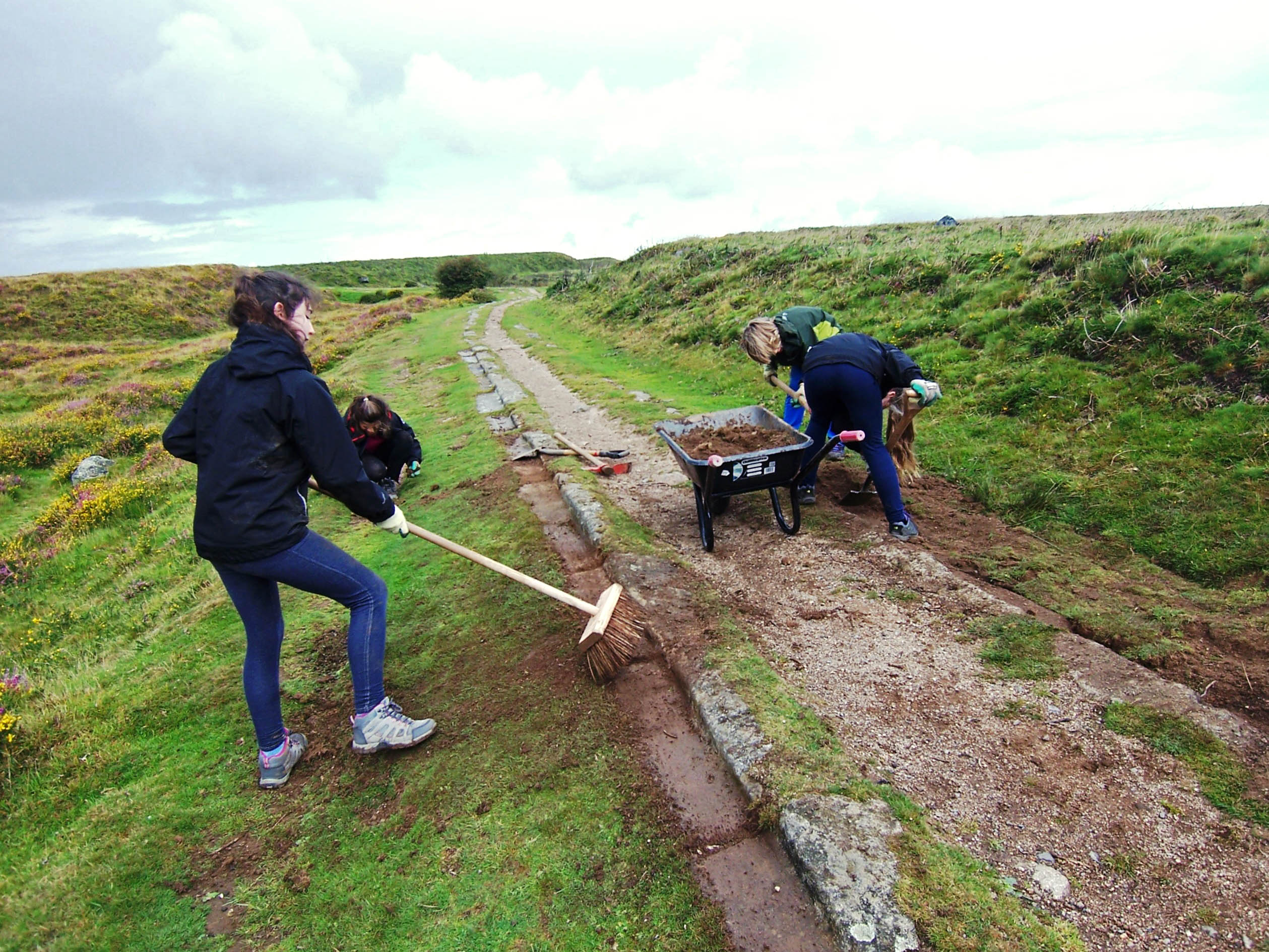Moor Otters Projects
Our Moor Otters public arts trail in 2017 saw 101 otter sculptures in various locations across Dartmoor and surrounding towns. The public arts initiative aimed to raise funds to support projects to conserve and enhance Dartmoor’s wildlife and landscape, improve accessibility to the moor and develop Dartmoor’s Junior Ranger programme.
We generated £60,000 of net income split equally between three projects.
Junior Rangers: £20,000 over two years

The project offers people between the ages of 12 – 16 a chance to develop a deeper understanding and passion for Dartmoor, as well as developing practical and personal skills. It was run as a pilot project until the injection of £20,000 thanks to Moor Otters.
Junior Rangers is an enjoyable way to become an ambassador for Dartmoor. There are tons of opportunities for learning, meeting like-minded people and having loads of outdoor fun.
Commitment to the programme is recognised with not one but four different awards:
- John Muir Explorer 8 day award – which has four important elements: discover, explore, conserve and share
- The international Europarc Junior Ranger Certificate
- The National Outdoor Learning Award which reflects on behaviours to help development and understanding of resilience and self-esteem.
- The local Dartmoor National Park Authority Junior Ranger Award
These certificates and awards help build a portfolio of achievement for those interested in a career in countryside management and can also be used to demonstrate motivation, commitment and personal development to employers or university admissions boards.
The Moor Otter funding helped Dartmoor National Park’s Junior Rangers win the Dartmoor Preservation Association shield in 2017 and in 2018 the prestigious UK National Parks Volunteer ‘Group’ Award.
Invasive non-native plant control: £20,000 over two years
We are taking direct action to tackle a very real threat to Dartmoor's environment and wildlife - the spread of non-native invasive plants. The funding helped us to build on successful trials and expand their scope to protect more habitats and involve more communities. We are concentrating our efforts on two species, Himalayan balsam and American skunk cabbage. These species are closely associated with streams, rivers, wetlands and ponds - the same habitats in which Dartmoor's otter population thrive.
Himalayan balsam
Willing volunteers pull up the plants before they flower, action which can clear this plant in just two years. We are probably never going to eradicate this invader from an entire river catchment but we can still make a difference in the upper tributaries. Moor Otters funding has enabled us to initiate a programme of control in priority catchments.
American skunk cabbage
The presence of this plant has been known for many years. We have already taken action to control the plant at two locations, with the co-operation of the landowners, the local community and partners. We used Moor Otters funding to offer advice and specialist help to control the plant at sites of high wildlife value.
Repairs to erosion: £20,000 over two years
There are many projects across the moor that benefited from these funds. They included path improvements to historic sites; gorse clearing, fencing and signage; path repairs on heavily used bridleways and eroded footpaths.
